Post by Mark Lavallee on Sept 27, 2012 15:37:26 GMT -5
Having alienated their fanbase Tull decided it was time for a much needed break. The Under Wraps tour concluded in December of 1984 and the band started their break, regrouping for a special concert in March, 1985 to celebrate Bach's 300th birthday, this time with Eddie Jobson handling keys instead of Peter-John Vettese. In the summer of 1986 they did a short series of shows with Vettese back in the keyboard slot, special guests of Marillion at Milton Keynes, a show in Tel Aviv and several festivals in Europe. 1986 saw the release of the Coronach single written by David Palmer as the theme to the historical TV series The Blood of the British. A beautiful song indeed, but not single material by any stretch of the imagination.
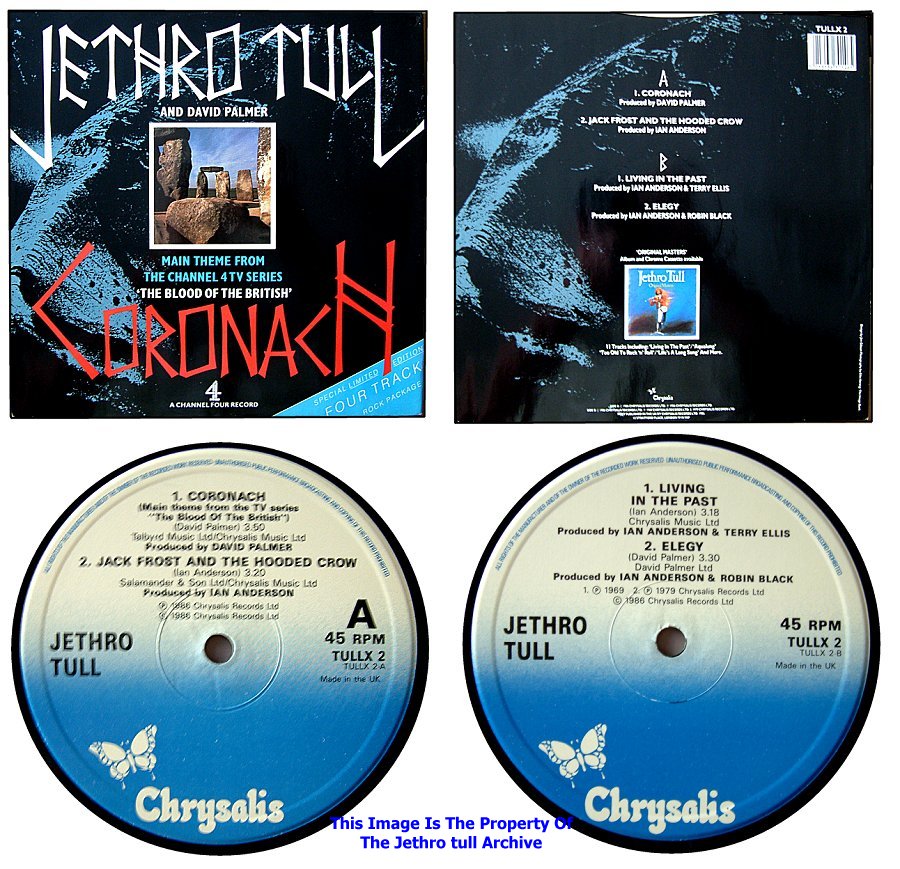
Finally in the Spring of 1987 Anderson was ready with some new material and together with Martin Barre and Dave Pegg (Anderson handled all the keyboard duties himself) they began recording in Ian's home studio. Using a combination of drum programming, former drummer Gerry Conway and current drummer Doanne Perry.

Released on September 11, 1987 Crest Of A Knave peaked at #32 in the US and #19 in the UK. In today's world it seems quite odd that having released an album only 3 years prior that this could be viewed as a "comeback" album, but 25 years ago three years between albums was seen as taking a long ass time and not the norm, or even rushing it as they do today.
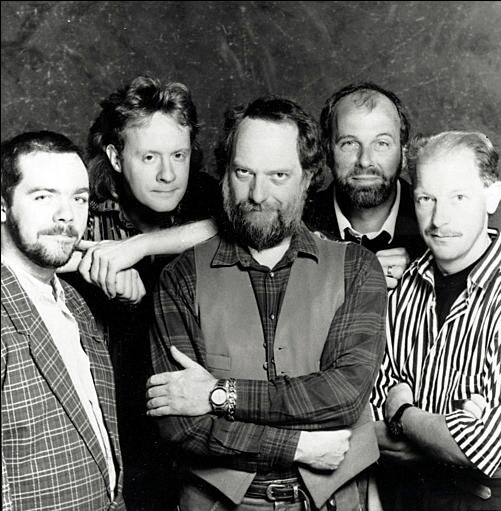
On the Under Wraps tour, nightly performing songs that were out of his comfort range, Anderson had done some serious damage to his vocal chords and required surgery, forever limiting his range and requiring him to alter his approach to singing. The resulting change in his voice as well as the greatly reduced core of the band essentially to a trio in the studio made the album much, much different from what had come before. Keyboards wouldn't be the dominant instrument this go around, indeed it was like a renaissance for Martin Barre as his guitar drives the songs making him the true stand out player on the album. No attempts at sounding modern were made, this was an older, more assured Tull doing what they do best. This approach paid off well as the album was a critical and commercial success.
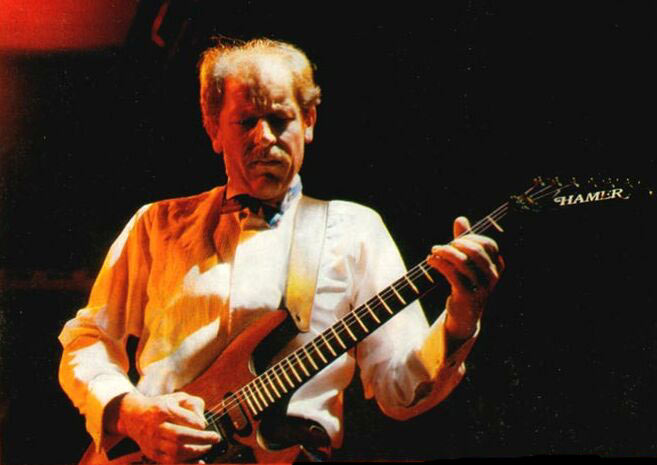
Side A opens with the industrial punch of Steel Monkey with it's fast sequenced keyboard riff and Barre's screaming guitar this one sounds quite like what ZZ Top were doing in their 80s synth phase and would fit perfectly on an album like Eliminator! A song about the men who build the steel construction of high-rise blocks and skyscrapers and a critique of the overdevelopment of cities. This was one of the singles off the album and made it to #10 in the US.

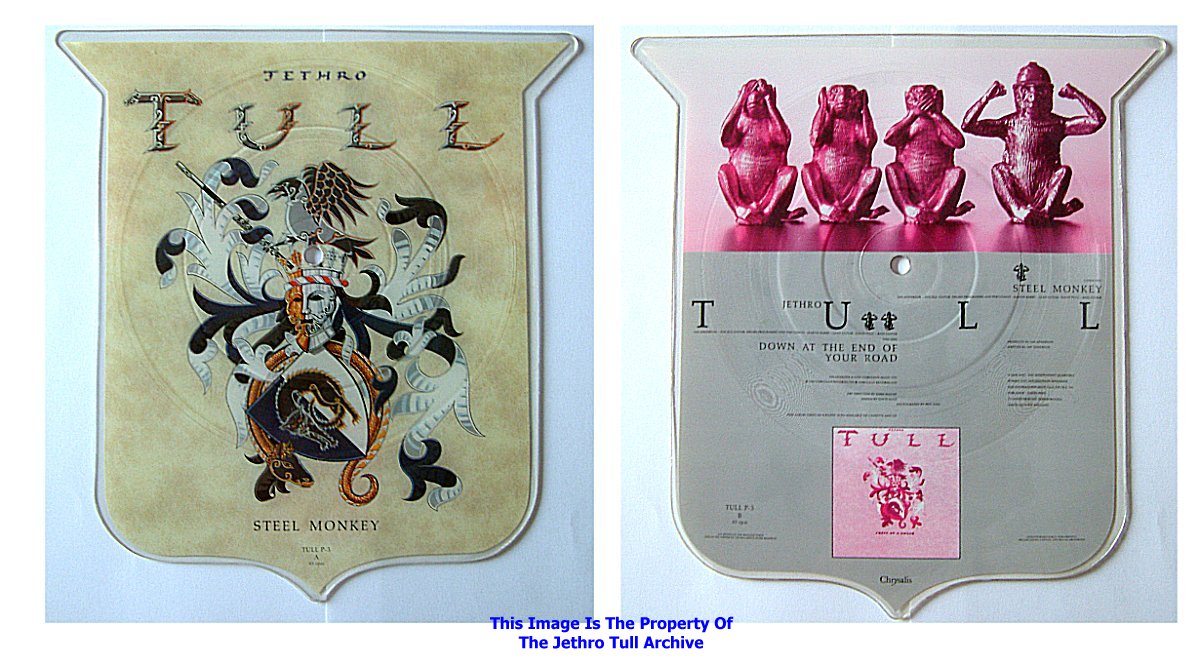
The theme of overdevelopment hinted at in Steel Monkey is made quite explicit in the next song, the beautiful, Farm On The Freeway. Barre is allowed to shine here with the wonderful ambient opening with soft keyboard, flute and an understated vocal before things pick up and become more dynamic. Truly one of the best songs Tull had released in years. The mature sound and Ian's changed voice requiring things played in a lower register really gives this song, and several others a Dire Straits feel. This one also was released as a single, where it made it to #7 in the US.
Next up is Jump Start a song about alienation and someone wanting to take part in the materialized world he sees around him. It's punchy acoustic intro and verses give way to a pounding chorus making it a very fun rocker. Another one released as a single, this one peaked at #12 in the US.
The first half concludes with the beautiful ballad Said She Was A Dancer. A song about two people on opposite sounds of the iron curtain meeting and the illusions they make about each other and themselves. This was released as a single in the UK where it peaked at #55.

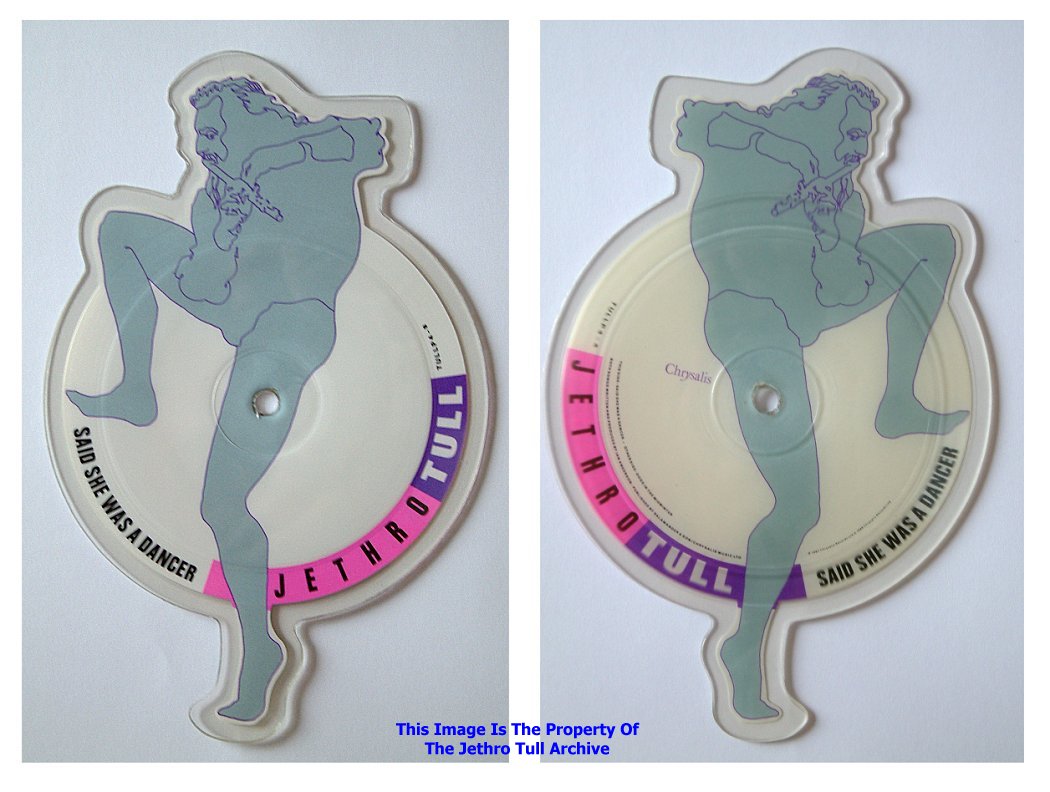
The CD edition of the album had two tracks not on the vinyl. Following Dancer was the song Dogs In The Midwinter. A dark, brooding song with a threatening atmosphere, a metaphore for western society in the 80s, economic depression and cold war fear.
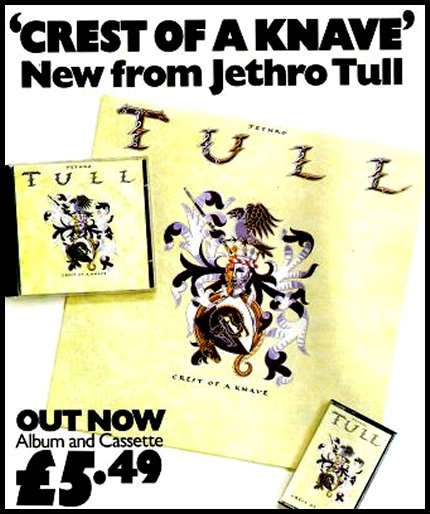
Side B opens with the wonderful epic Budapest. This brilliant song takes it's time with a nice quiet intro that builds with sweeping keys, Barre's guitar, flute embellishments and Ian's soft vocal. A tale inspired by a hotel waitress Ian witnessed after their 1986 show in Budapest.
Mountain Men is at once an homage to Ian's home country of Scotland and an indictment of war. Great melody here on this mid-paced rocker. A real underrated gem. David Gilmour obviously liked it when he wrote High Hopes...
The album concludes with the eastern influenced into and into The Waking Edge, a melancholy song about the process of waking up and coming out of a dream state into reality.
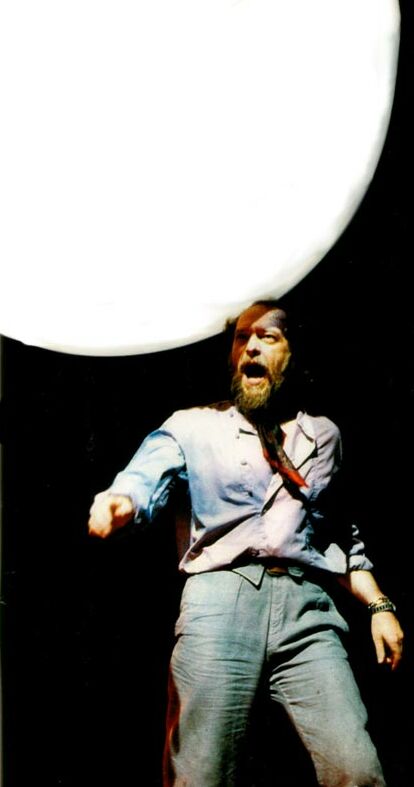
The CD version added the track Raising Steam, a rocker similar to Steel Monkey, a traditional American road song ala Woody Guthrie.
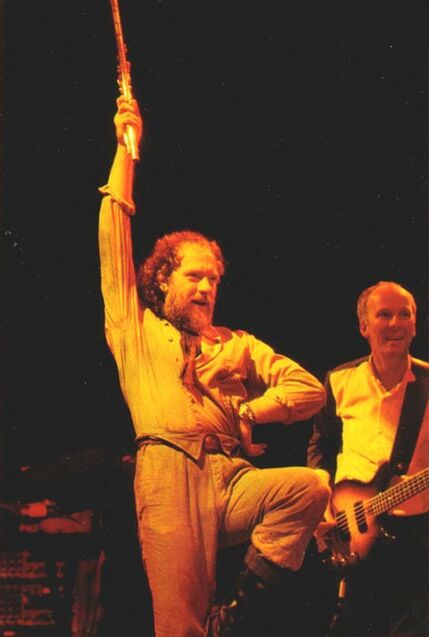
The remaster of the album includes the single Part Of The Machine which was recorded for the wonderful 20 Years Of Jethro Tull box set in 1988, the single peaked at #10 in the US. A wonderful song, equal to the best on the Crest album. A song about American politics, great lyric as ever.

Crest Of A Knave is the album that forever destroyed the band's name to the mullet crowd by winning the Grammy for Best Heavy Metal/Hard Rock performance.
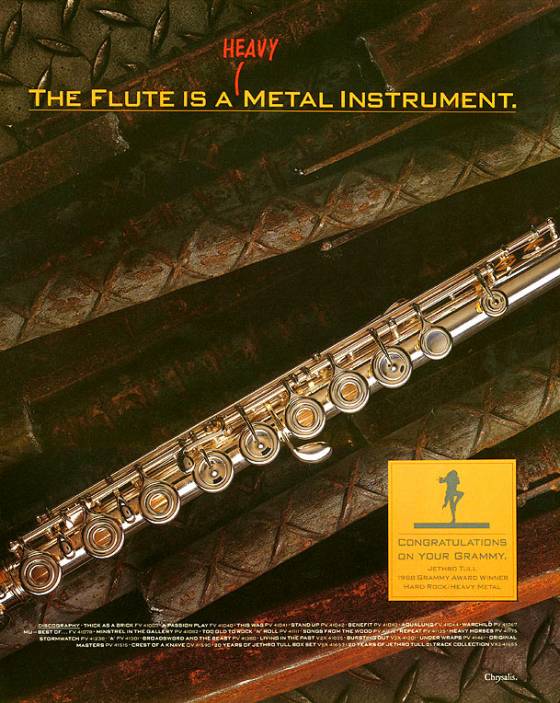
The tour was a great success, with every night sold out. Ex Rainbow keyboardist Don Airey joined the band for the tour, after which, oddly enough, Fairport Convention lead guitarist Maartin Allcock was brought in on keyboards.
Final thoughts:
Great album, and a great "comeback" at least commercially. Some of Tull's strongest material in years with songs like Budapest and Farm On The Freeway. A new, more mature Tull ready to take their place as elder statesmen of rock. Anderson knowing his voice is diminished uses it's weakness to his advantage, no Paul Stanley blind posturing here, he knows his limits and doesn't think he can just bluff through it.
4.6 out of 5 stars

Finally in the Spring of 1987 Anderson was ready with some new material and together with Martin Barre and Dave Pegg (Anderson handled all the keyboard duties himself) they began recording in Ian's home studio. Using a combination of drum programming, former drummer Gerry Conway and current drummer Doanne Perry.

Released on September 11, 1987 Crest Of A Knave peaked at #32 in the US and #19 in the UK. In today's world it seems quite odd that having released an album only 3 years prior that this could be viewed as a "comeback" album, but 25 years ago three years between albums was seen as taking a long ass time and not the norm, or even rushing it as they do today.

On the Under Wraps tour, nightly performing songs that were out of his comfort range, Anderson had done some serious damage to his vocal chords and required surgery, forever limiting his range and requiring him to alter his approach to singing. The resulting change in his voice as well as the greatly reduced core of the band essentially to a trio in the studio made the album much, much different from what had come before. Keyboards wouldn't be the dominant instrument this go around, indeed it was like a renaissance for Martin Barre as his guitar drives the songs making him the true stand out player on the album. No attempts at sounding modern were made, this was an older, more assured Tull doing what they do best. This approach paid off well as the album was a critical and commercial success.

Side A opens with the industrial punch of Steel Monkey with it's fast sequenced keyboard riff and Barre's screaming guitar this one sounds quite like what ZZ Top were doing in their 80s synth phase and would fit perfectly on an album like Eliminator! A song about the men who build the steel construction of high-rise blocks and skyscrapers and a critique of the overdevelopment of cities. This was one of the singles off the album and made it to #10 in the US.


The theme of overdevelopment hinted at in Steel Monkey is made quite explicit in the next song, the beautiful, Farm On The Freeway. Barre is allowed to shine here with the wonderful ambient opening with soft keyboard, flute and an understated vocal before things pick up and become more dynamic. Truly one of the best songs Tull had released in years. The mature sound and Ian's changed voice requiring things played in a lower register really gives this song, and several others a Dire Straits feel. This one also was released as a single, where it made it to #7 in the US.
Next up is Jump Start a song about alienation and someone wanting to take part in the materialized world he sees around him. It's punchy acoustic intro and verses give way to a pounding chorus making it a very fun rocker. Another one released as a single, this one peaked at #12 in the US.
The first half concludes with the beautiful ballad Said She Was A Dancer. A song about two people on opposite sounds of the iron curtain meeting and the illusions they make about each other and themselves. This was released as a single in the UK where it peaked at #55.


The CD edition of the album had two tracks not on the vinyl. Following Dancer was the song Dogs In The Midwinter. A dark, brooding song with a threatening atmosphere, a metaphore for western society in the 80s, economic depression and cold war fear.

Side B opens with the wonderful epic Budapest. This brilliant song takes it's time with a nice quiet intro that builds with sweeping keys, Barre's guitar, flute embellishments and Ian's soft vocal. A tale inspired by a hotel waitress Ian witnessed after their 1986 show in Budapest.
Mountain Men is at once an homage to Ian's home country of Scotland and an indictment of war. Great melody here on this mid-paced rocker. A real underrated gem. David Gilmour obviously liked it when he wrote High Hopes...
The album concludes with the eastern influenced into and into The Waking Edge, a melancholy song about the process of waking up and coming out of a dream state into reality.

The CD version added the track Raising Steam, a rocker similar to Steel Monkey, a traditional American road song ala Woody Guthrie.

The remaster of the album includes the single Part Of The Machine which was recorded for the wonderful 20 Years Of Jethro Tull box set in 1988, the single peaked at #10 in the US. A wonderful song, equal to the best on the Crest album. A song about American politics, great lyric as ever.

Crest Of A Knave is the album that forever destroyed the band's name to the mullet crowd by winning the Grammy for Best Heavy Metal/Hard Rock performance.

The tour was a great success, with every night sold out. Ex Rainbow keyboardist Don Airey joined the band for the tour, after which, oddly enough, Fairport Convention lead guitarist Maartin Allcock was brought in on keyboards.
Final thoughts:
Great album, and a great "comeback" at least commercially. Some of Tull's strongest material in years with songs like Budapest and Farm On The Freeway. A new, more mature Tull ready to take their place as elder statesmen of rock. Anderson knowing his voice is diminished uses it's weakness to his advantage, no Paul Stanley blind posturing here, he knows his limits and doesn't think he can just bluff through it.
4.6 out of 5 stars


